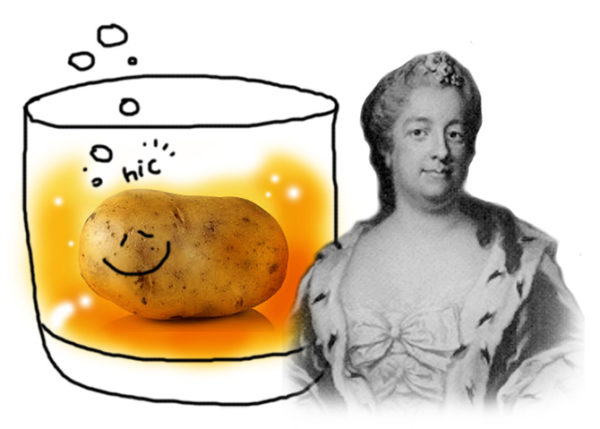Swedish scientist Eva Ekeblad, best-remembered for discovering that alcohol and flour can be made from potatoes, is suddenly on everyone’s minds — all thanks to a Google Doodle.
‘[She] brought potatoes, then a greenhouse curiosity, to the people,’ Google noted July 10. ‘Eva discovered the starch was humble but mighty — potatoes could be ground into flour or distilled into spirits.’
Her discovery paved the way for alcohols like vodka and potato wine, and gluten-free baking. But there was so much more to her fascinating life and career!
Though potatoes had arrived in Sweden in 1658, for the century till Ekeblad’s discoveries, it was only available to the aristocracy, and reserved for animals. It wasn’t even considered edible for humans. Almost 300 years after her death, potatoes remain an integral part of the Swedish diet.
The discovery that potatoes could be used to make alcohol helped solve a food crisis in Sweden. It freed up the supply of wheat, rye and barley for food and helped reduce the frequency of famines.
She discovered a method of bleaching cotton textile and yarn with soap in 1751.
She was elected to Royal Swedish Academy of Sciences in 1748. She was only 24, and became the first woman to receive the honour — an honour that was not bestowed on another woman for another 203 years!
Apart from being an agronomist, Ekeblad was also part of the Swedish royalty. She was married to a count twice her age and had seven children. Records reveal that along with her scientific work, she also managed three of her family’s castle estates, which included presiding at the country-assemblies of the parishes of the estates.
Fun fact: Ekeblad’s sister-in-law, Countess Catherine Charlotte De La Gardie, introduced smallpox vaccination in Sweden and stopped witch hunts in the country.



Leave a reply